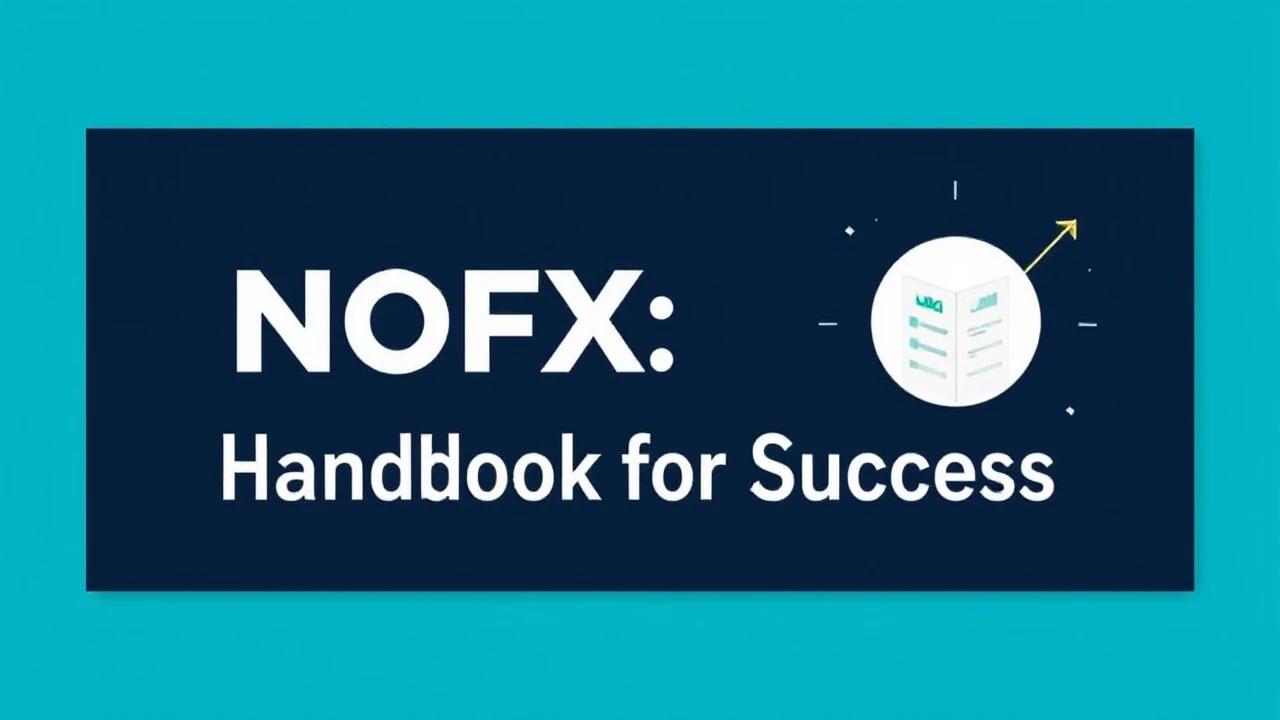Latest Updates
Featured Posts
Get in Touch
123 Innovation Street
Tech District, CA 94105
[email protected]
+1 (234) 567-890

The Future of Skincare: PDRN Serum Trends You Should Keep an Eye On


Using NordFX WikiFX: A Complete Handbook for Success
 Health
Health
Classy and Fashionable: Creative Ways to Style Diademas
 Business
Business
Mastering the Art of Layering Farm Work Shirts for Cold Weather
Today's Top Highlights
Discover the latest stories and insights from our community
 Others
Others
Game Casino Terbaik yang Menguntungkan untuk Dimainkan
 By Luis Gibson
•
14 Sep 2025
By Luis Gibson
•
14 Sep 2025
 Others
Others
How Mobile Gaming Influences Smartphone Play on Online Casino Slot Machines
 By Luis Gibson
•
14 Sep 2025
By Luis Gibson
•
14 Sep 2025
 Others
Others
How Mobile Gaming Influences Mobile Play on Internet Casino Slots
 By Luis Gibson
•
14 Sep 2025
By Luis Gibson
•
14 Sep 2025
 Others
Others
Understanding the Role of Proficiency in Online Casino Slot Success
 By Luis Gibson
•
14 Sep 2025
By Luis Gibson
•
14 Sep 2025
 Others
Others
Exploring the Role of Skill in Online Casino Slot Success
 By Luis Gibson
•
14 Sep 2025
By Luis Gibson
•
14 Sep 2025
 Others
Others
Trik Terbaik Agar Selalu Sukses Bermain Mesin Slot Casino
 By Luis Gibson
•
13 Sep 2025
By Luis Gibson
•
13 Sep 2025
 Others
Others
Panduan Memilih Mesin Slot Kasino yang Menguntungkan
 By Luis Gibson
•
13 Sep 2025
By Luis Gibson
•
13 Sep 2025
 Others
Others
Tutorial Main Slot Casino: Kiat dan Trik Paling Ampuh
 By Luis Gibson
•
13 Sep 2025
By Luis Gibson
•
13 Sep 2025
 Others
Others
The Appeal of Adventure and Exploration in Slot Game Themes
 By Luis Gibson
•
13 Sep 2025
By Luis Gibson
•
13 Sep 2025
 Others
Others
The Top 10 Features That Enhance User Participation in Virtual Slot Machines
 By Luis Gibson
•
13 Sep 2025
By Luis Gibson
•
13 Sep 2025
 Others
Others
The Top 10 Features That Improve User Participation in Slot Games
 By Luis Gibson
•
13 Sep 2025
By Luis Gibson
•
13 Sep 2025
 Others
Others
Mastering the Craft of Establishing Win and Loss Limits in Slot Machine Gaming Sessions: Everything You Need to Know
 By Luis Gibson
•
13 Sep 2025
By Luis Gibson
•
13 Sep 2025
September 2025 Blog Roll
- okfun.com
- VMAX
- u888
- Kubet
- slot
- online casinos
- 66 Club
- 58win
- https://789p.gb.net/
- NOHU
- https://hz881.com
- https://hm88188.com/
- https://af883.com/
- https://888News.de
- https://eu9vn7.com
- https://89BetKing.com
- https://68winss.online/
- https://Go99.is
- https://tv8889.net
- https://nohu90s.ink
- https://xn8800.com
- GO8
- Lc88
- 789Win
- go8
- https://Go892.com
- https://go99.ca
- casino en ligne fiable France
- https://heylink.me/mega888game/
- okwin
- https://5mb.day/
- EV88
- casino gratuit en ligne
- lode88
- https://789f.fan/
- Nhà cái uy tín
- gnbet
- kèo bóng đá
- nohu
- beste online casinos
- gamstop
- online casino
- https://luongsontv42.com/
- LC88
- GEM88
- Fb88
- w88
- w88
- crypto presales
- https://32winz.com/
- MM88
- https://5mb.icu/
- https://5mb.gg/
- https://5mb.io/
- https://5mb.es/
- casino online deutschland
- 5MB.COM
- https://78winni.net/
- iwin
- rikvip
- rikvip
- bk8
- bk8
- 8xbet
- gem88
- gem88
- https://oxbet.cafe/
- https://32winz.org
- https://wwqq88.com/
- Trang Chủ Luck8
- kkwin
- zona66
- okwin
- tip88
- 9bet
- alo789
- km88
- https://kkwin.co.com/
- okwin
- best canadian online casino real money
- best canadian online casinos
- safe online casinos canada
- casinos online canada
- real online casino canada
- go8
- E2BET
- E2BET
- E2BET
- best canadian online casino
- F8BET
- New88
- New88
- https://q789win.vip/
- https://hm88.actor/
- https://88aa.golf/
- Sunwin
- Tải App GK88
- https://fsbet.net/
- tx88
- da88
- lucky88
- SKY88
- luongsontv
- https://zona66.cam/
- TRANG CHỦ OKVIP
- Leo88
- casinos online
- xlbola
- RR88
- LT88
- bj88
- 789club
- https://kubett.diy/
- over under parlay
- https://www.emprendeimperio.com/
- bitcoin casino USA
- slot scatter hitam
- kuwin
- v9bet
- kuwin
- kointoto
- MB66
- okwin
- lode88
- u888
- gacor88
- mitra super scatter
- F168VIP
- https://www.addictologie.org/
- 32win
- KUWIN
- 789bet
- E2BET
August 2025 Blog Roll
- 32win
- 11bet
- https://fb88.nexus/
- pg88 trang chủ
- HI88
- https://take2bet.com/
- mm88
- KKWIN
- xx 88
- 789win
- aq999com
- casino en ligne France
- Kubet
- XX88
- zbahis
- Ligahokie22
- 58win
- văn khánh tv
- 28betjp.com
- 789F
- 강남 가라오케
- nhacaiuytin
- uus777
- Fb88
- 69vn
- rr88
- mantap 555
- XX88
- 23win
- Bet88
- kangjitu
- okwin
- kiyo4d
- link Aloha4d
- link alternatif api88
- toto slot
- オンラインカジノ おすすめをピックアップ
- MM88
- 789P
- 9bet
- mm 88
- okwin
- slot gacor
- bola88 login
- Bsports
- FB88
- TIP88
- SBOTOP
- https://km88.monster/
- pembelian ak47
- 69vn
- King88
- poker88
- Bkkwin
- gacorbet88
- mpo777 daftar
- 13win okvip
- Slot Shopeepay
- 69VN
- https://shbet63.com/
- liên minh okwin
- สล็อต666
- Hello88
- u888
- Kubet
- Nohu90
- bay789
- 789WIN
- Thabet
- mbak4d
- 69VN
- kèo nhà cái bet88
- ngân hàng nông thôn
- casino en ligne France légal
- slot gacor
- 13win
- casino en ligne fiable
- https://23win.in.net/
- MM88
- https://e-aula.anestesiar.org/
- https://sunwinners.com/
- QQ88
- 88bet
- DU88
- randm tornado 15000
- nhà cái uy tín
- domtoto
- cpc2888
- Situs togel
- RR88 Com
- kèo nhà cái
- https://sossoftware.co.uk/
- hi88
- https://dola789.events/
- betvnd
- Hit77
- https://58win79.com/
- SV368
- https://789win1.live/
- slot okesultan
- j88
- 88BET
- pengeluaran macau
- https://kjc.website/
- 789P
- https://xx88.art/
- jun88
- MM88
- แทงหวย
- https://32win.dev/
- 32win
- SV368
- https://79kingg.me/
- https://okwin.study/
- https://vnae2bet.games/
- https://vnd77-viet.com/
- slot88
- XX88
- MM88
- Aloha4d
- j88
- https://23win.domains/
- https://98win.media/
- diploma kopen
- okking
- Ok365
- e2bet-games.com
- mpo777
- u888
- kuwin
- Katsu5
- Bet88
- go8.com
- SV368
- nhà cái uy tín
- td88
- casino utan spelpaus
- qh88
- link tigerasia88
- OKWIN
- da88
- KJC
- F168
- du88
- SV388
- UFANANCE
- https:vip52.io/
- situs togel
- MM88
- xx88
- NO HU
- lucky88
- slot online terbesar
- 33win
- mmoo
- slot
- casino en ligne France
- bitcoin casino Sverige
- https://32win1.black/
- hi88biz
- Tỷ lệ kèo
- 8XX
- hi88o
- luongsontv
- 8day
- best online casinos canada
- 98WIN
- Trang game giải trí
- XX88
- kubet77
- mm88
- https://33winf.fun/
- casino en ligne fiable
- S666
- xoso66
- kangtoto
- Cwin
- okvip
- 32win
- slot777
- เว็บสล็อต
- 79king
- https://mm88.design/
- wps官网
- J88
- pg99
- RR88
- deneme bonusu veren siteler
- 8DAY
- toto slot
- https://mm88.space/
- slot gacor
- uu888
- luongsontv
- five88
- bigdewa
- pg99
- 8kbet
- TG88
- MM88
- casino utan spelpaus
- 789P
- 9bet
- Online Casino België
- lapak303 link alternatif
- dewacash login
- ww88
- rr88
- https://789win.market/
- hi88
- kuwin
- bet88
- 33winn center
- xem bóng đá okwin
- https://shbet.vin/
- luongsontv
- 搜狗输入法下载
- Hi88com
- https://sv3688.live/
- okwin
- QQ88
- VankhanhTV
- golbos
- xx88.aisa
- https://13wines.biz/
- https://9ae888.com/
- non gamstop casino
- 23win
- 89bet
- creditcard casino
- vin88
- f8 bet
- f8bet
- xin88
- teratai888
- mibet
- XX88
- 블랙툰
- 32win
- https://t8kbet5.com/
- Toto Togel
- 69vn com
- xx88 casino
- alo789
- 100vip
- ww88
- hi88
- UU88
- xx88
- SLOT GACOR
- wingslots77
- upinslot
- https://f8bet-vn.com/
- best online casinos pakistan
- hm88
- u888.com
- สล็อตเว็บตรง
- ALO789
- Electric Bikes
- OK9
- w88
- u888
- tdtc
- 789bet
- 77WIN
- Kèo Chuẩn
- 789win
- meilleur casino en ligne
- qq88 com
- api66 login
- 789 win
- lương sơn tv
- https://u8888one.baby/
- 8kbet.com
- Kubet
- MM88
- Truyenqq
- SV368
- slot oke sultan
- 23WIN
- https://ax88xx.com/
- dentoto
- w69
- uu88
- SLOT QRIS
- lxtoto
- เว็บพนันออนไลน์
- https://okwin.care
- qh88
- casinon utan svensk licens
- 8XBET
- https://23wincom.tv/
- da88
- https://j88play.com/
- layaktoto
- BET88
July 2025 Blog Roll
- แทงหวยออนไลน์
- HUBET
- สล็อต
- slot gacor
- Slot Online
- BJ88
- TX88
- J88
- GA888
- XX88
- dominobet
- Operabola
- 9bet
- 69VN
- romabet giriş
- 888b
- BET88
- best casino apps
- https://rr88.build/
- 79king
- VN88
- kèo nhà cái
- https://555win.io/
- Nhà cái uy tín
- cpc2888
- mantap555
- whatsapp网页版
- 7meter
- kubet
- tx88
- win55
- 98win
- dinasti555
- may88
- 88vv
- https://keonhacaitv.net
- 33win
- 789P
- TD88
- สล็อต168
- le guide F1only des meilleurs casinos en ligne
- u 888
- http://88clblw.com/
- zenostogel
- bandar togel
- link m88
- สล็อต
- du88.com
- slot gacor
- nyalabet
- najbolje sportske kladionice
- TK88
- VMAX
- ALO789
- 78WIN
- skor88
- https://www.thecitycentre.london/
- gudangbet88
- F168
- dewahub
- Nhà cái uy tín
- lucky88
- DA88
- binjaitoto
- 9bet
- สล็อตเว็บตรง
- Nohu
- UU88
- https://k8cc.energy/
- https://k8cc.uno/
- https://www.adswindentoto.com/
- 123win
- vipwin
- 58WIN
- ok9
- lsm99
- sadewa77
- cá cược online QQ88
- ALO789
- https://da88.education/
- slot gacor
- SV88
- areaslots
- Slotbom77 Login
- fb88
- Gofun娛樂城
- 플러스카지노 도메인
- 789win
- SLOT88 GACOR
- 79king
- OKKING
- u888
- cwin
- Slot Gacor
- Nohunet.com
- cemeslot
- J88
- 7m
- 188BET
- pg88
- fo88
- i9bet
- OK365
- kuwin
- https://nhacaiuytin.tips/
- GK88
- 69VN
- E2BET
- https://elizas.co.nz/
- Bet88
- non gamstop casinos
- hi88
- ufabet
- XX88
- 79KING
- XX88
- j88
- slot online
- BONG88
- XX88
- บาคาร่า
- telegram 下载
- ok365
- ww88
- BET88
- B52 CLUB
- ปั้มไลค์
- สัญญาฟิวเจอร์สคริปโท
- QQ88
- 58WIN
- koinvegas daftar
- asianslot88
- https://five88.monster/
- uu88
- KUBET
- xổ số shbet
- 23bet
- BJ88
- beste online casino zonder cruks
- สล็อต888เว็บตรง
- https://u888.paris/
- nhà cái 69VN
- https://qq88pro.vip/
- rr88
- nohu
- mahkota555
- LUCK8
- 69vn
- https://kjc1.top/
- สล็อต 789
- shbet
- 33win
- Ufabet
- https://mm88.build/
- Bo Togel
- mdgwin
- 33win
- daman app download
- https://nohu.br.com/
- slot gacor
- situs slot gacor
- 먹튀폴리스
- https://68xbet.net/
- Sawer4d
- สล็อตเว็บตรง
- สล็อต
- papatogel login
- sabung ayam online
- https://32win.golf/
- https://xo88casinox.com/
- slot gacor
- สล็อต 99
- lucky88
- dewabet
- situs slot gacor
- 69VN
- xoso66
- W88
- batik55
- bet88
- https://23winvn.co/
- XX88
- slot gacor hari ini
- kubet
- slot gacor
- j88
- deluna188
- https://j88.ventures/
- mbak4d
- Lucky88
- https://nohu.locker/
- slot gacor
- 32win
- Link Scatter Hitam
- bondan69
- kuwin com
- sunwin
- s1288poker
- bandar togel
- slot gacor
- best VPN casino
- kingjr99
- luongson tv
June 2025 Blog Roll
- slot gacor
- best instant withdrawal crypto casino
- ok365
- slot gacor
- 789win
- saldowd
- LUCK8
- slot online
- ολα τα online casino
- https://pg99bz.com/
- 6FF
- slotsgg
- bet88
- ku casino
- KUBET
- สล็อต168
- onbet
- Lu88
- oxbet
- inatogel
- Neng4d
- XX88
- 99ok
- u888
- kuwin
- dinasti555
- 8kbet
- Truyenqq
- MB66
- RR88
- 33WIN
- offshore casinos
- 8kbet
- kèo nhà cái
- slot bet 100
- ufa289
- OKWIN
- indo gg
- QQ88
- https://789winok.com/
- mahkota555
- data macau
- Udangbet
- 58win
- 娛樂城紅包
- GK88 web
- uus777
- 9BET
- candu123
- SLOT88 THAILAND
- I9BET
- 68gamebai
- Fun88
- TD88
- 69vn
- j88
- parisumut.org
- BIG88
- 58WIN
- u888
- slot gacor
- F8BET
- Thabet
- king88
- klikfifa
- bong88
- QQ88
- hb88
- one88
- ww88
- QQ88
- xin88
- luck8
- RIKVIP
- airasiabet
- J88
- 8live
- GA179
- abc88
- saobet
- https://bet68gamebai.com/
- miso88
- sitoto link
- 789p
- ufabet เว็บหลัก
- 8kbet
- 69vn
- https://ax88.store/
- dm win
- https://lucky88.bike/
- kartupoker
- 23win
- https://shbet45.com/
- 58WIN
- betclub89
- https://58win.watch/
- remipoker daftar
- SITUSWIN
- nhà cái bk8
- ai meta hack
- kí tự đặc biệt
- uu88
- link Aloha4d
- best options to play casino games in Australia
- https://qq88.racing/
- cipung138
- PESIARBET
- kubet88
- 789WIN
- 카지노코리아
- jkbet88
- PG99
- abc8
- trực tiếp đá gà thomo
- Jun88
- magnumtogel
- pg88
- jayaslot
- LODE88
- garuda303
- Kubet
- https://king88.international/
- E2BET
- https://k8cc.faith/
- 23win
- https://bet88zb.com/
- mantap555
- link Aloha4d
- link sigapbet
- kentucky derby sportsbooks
- i9bet
- SHBET
- dewascore
- website slot gacor
- 88CLB
- bet88
- 78win
- ae888
Recent Posts


Sponsored News

Exploring the Art of Slot Game Return on Investment: Tips for Maximizing Wins
 Luis Gibson
Luis Gibson

Influence of Technology on the Future of Online Slot Development
 Luis Gibson
Luis Gibson

Influence of Technology on the Upcoming Trends of Online Slot Development
 Luis Gibson
Luis Gibson

The Progress of Slot Machine Bonuses: Starting with Spinning for Free to Increasing Wins
 Luis Gibson
Luis Gibson

Exploring the Secrets of Casino Slot Hit Frequency: When Payouts Happen
 Luis Gibson
Luis Gibson

Influence of Graphics and Animation in Modern Slot Game Design
 Luis Gibson
Luis Gibson